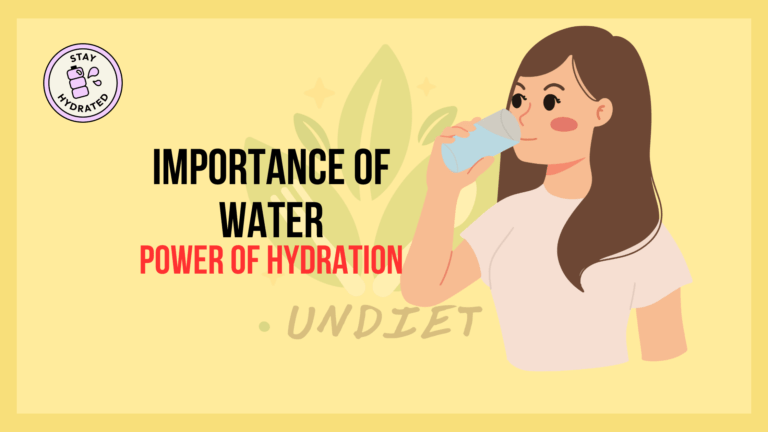Staying Hydrated This Winter Like a Pro: Your Complete Guide

Staying hydrated this winter by drinking water regularly and eating hydrating foods. Keep a reusable water bottle handy and monitor your intake.
Staying hydrated this winter, it’s easy to ignore our body’s need for water. Unlike the summer months when heat and sweat signal the need to replenish fluids, cold weather tends to suppress thirst. This can lead to inadvertent dehydration, where we might not drink enough because we don’t feel as thirsty.
Ensuring proper hydration is crucial for maintaining good health and optimizing bodily functions, even in cooler temperatures. Staying hydrated this winter helps regulate body temperature, keeping skin moisturized, and aiding digestion. It also plays a vital role in cushioning joints and maintaining electrolyte balance. This introduction serves as a reminder of the importance of keeping up with fluid intake during the colder months, using practical and simple strategies.
Common Misconceptions About Staying Hydrated This Winter
Staying hydrated this winter is crucial for maintaining good health, yet it is often overlooked during the winter months. A prevalent myth suggests that our bodies require less water when the temperatures drop. With this in mind, let’s dispel the common misconceptions about Staying hydrated this winter and emphasize the significance of keeping up with our water intake regardless of the season.
Debunking The Myth Of Reduced Water Needs In Winter
Cold weather does not equate to lower hydration needs. Many believe that because they sweat less in winter, their water intake needs to decrease. This misunderstanding can lead to inadequate hydration and, subsequently, a myriad of health issues. The dry winter air increases the rate at which our bodies lose fluids through respiratory water loss. Therefore, staying vigilant about water consumption is as vital in the cold months as it is during the summer.
- Indoor heating systems can deplete moisture from the air and contribute to quicker dehydration.
- Physical activity in cold conditions requires adequate hydration to maintain performance and warmth regulation.
- Dressing in layers causes the body to sweat, which necessitates replenishing lost fluids.
Challenging The Belief That Winter Hydration Is Less Critical
Contrary to the perception that hydration is solely a concern for the summer heat, maintaining fluid intake during winter supports the immune system and plays a role in preventing ailments like the common cold and flu. It’s crucial to recognize that your body continues to lose water through various channels regardless of the chilliness.
| Function | Impact of Hydration |
|---|---|
| Immune Health | Optimal hydration aids in the production of lymph, which carries white blood cells and other immune system cells. |
| Physical Performance | Even mild dehydration can impede physical performance, particularly in outdoor winter sports. |
| Skin Health | Hydration keeps the skin supple and mitigates the effects of dry, harsh winter air. |
It is essential to adopt a conscious hydration strategy during winter to ensure that the body functions optimally. This strategy could mean setting reminders to drink water, tracking intake, or incorporating high-water-content foods into your diet. Remember that signs of dehydration such as thirst, dry skin, or fatigue are late indicators, so proactive hydration is key to well-being.
Dehydration Risks In A Winter Climate

The chill of winter often brings hot drinks, cozy blankets, and soothing comfort foods. However, amid these comforting rituals, it’s easy to overlook the importance of Staying hydrated this winter. Many people associate dehydration with the scorching heat of summer, failing to realize that the risk of dehydration remains prevalent in colder climates. Due to factors like less perspiration, not feeling thirsty, and the diuretic effect of cold weather, winter can be just as dehydrating as any other season.
Recognizing Signs Of Dehydration Unique To Winter
Dry, chilly air and the body’s adaptations to cold temperatures can mask the usual thirst signals, leading to a higher risk of dehydration without the usual cues. Look out for these signs:
- Less Frequent Urination: Because people tend to drink less and sweat less in cold weather, there may be a noticeable decrease in the urge to urinate.
- Drier Skin: Winter air is often dryer, which can lead to dehydrated skin if not sufficiently compensated with fluid intake.
- Chapped Lips: A tell-tale winter sign, but also an indication of body dehydration.
- Increase in Respiratory Infections: Adequate hydration is essential to keeping mucous membranes moist, so they can effectively trap and clear viruses.
- Fatigue or Dizziness: Energy levels can plummet and dizzy spells may occur as the body functions less optimally without adequate hydration.
Understanding The Impact Of Cold Weather On Hydration
Cold weather can trick our bodies into thinking we are well hydrated, leading to less water consumption. Unlike warm environments where the body perspires and prompts fluid intake, cold conditions may suppress thirst. Furthermore, breathing in cold, dry air requires the body to warm and humidify it, which increases water loss through respiration. Additionally, wearing heavy clothing can contribute to a significant amount of unnoticed sweat and fluid loss, compounding the risk of dehydration.
Be mindful that indoor heating systems can dehydrate our bodies more quickly due to the dry air they circulate. Recognizing and understanding these impacts is crucial for implementing preventive measures to maintain hydration during the winter months.
Indoor Heating And Hydration Levels
Staying hydrated this winter, many of us rely on indoor heating to keep our homes cozy and warm. However, while these heating systems are great for warding off the cold, they can also have unintended consequences for our hydration levels. Dry air is a common byproduct of many heating systems, and it can lead to moisture depletion in our bodies, emphasizing the need for diligent hydration practices. Understanding the relationship between indoor heating and hydration is crucial for maintaining optimal health throughout the colder months.
Effects Of Central Heating On Body Moisture
The dry heat from radiators and heaters can cause the humidity level in your home to plummet. This drop in humidity has a direct effect on your body’s moisture levels. The skin and respiratory system are particularly vulnerable, as they can lose moisture to the dry air, leading to dryness and irritation. Dehydration isn’t just about quenching thirst; it’s also about ensuring that every cell in your body has the moisture it needs to function properly. The consequences of a moisture-deprived environment can be uncomfortable and potentially harmful.
Signs of dehydration may not always be explicit, especially when we’re less likely to feel thirsty in cooler temperatures. However, signs like dry skin, chapped lips, a dry throat, and even increased susceptibility to colds can all indicate that the body is missing the moisture it needs.
Balancing Room Temperature And Hydration
Achieving an equilibrium between comfortable room temperature and optimal hydration doesn’t have to be an uphill battle. The key is to find strategies that maintain humidity while Staying hydrated this winter chill at bay. One straightforward method is to use a humidifier to reintroduce moisture into the air, compensating for the drying effects of your heating system.
- Set humidifiers to maintain indoor humidity levels between 30-50%, which is ideal for both comfort and health.
- Plants are natural humidifiers and can add moisture to the air. Consider having a variety of indoor plants.
- Staying hydrated this winter requires drinking plenty of fluids. Warm teas and soups not only hydrate but also provide a comforting warmth.
- Wearing layers can help control body temperature and reduce the need to crank up the heat.
Monitoring your home’s temperature and investing in digital hygrometers can keep you informed about the air quality and ensure that you’re taking the right steps to maintain hydration. Pair this with a regular intake of water and fluids, regardless of your thirst levels, and you’ll support your body’s needs throughout the colder days.
Warming Hydrating Beverages
As the weather outside turns frosty, it’s crucial to find ways to warm up without compromising on staying hydrated this winter. Warming Hydrating Beverages come to the rescue, offering the comforts of a cozy drink while ensuring we maintain our fluid intake. Sipping on a hot beverage is more than just a way to thaw out your fingers—it’s a ritual that nurtures both body and soul. Let’s explore some delightful options that not only warm you up but also help keep hydration levels optimal.
Herbal Teas And Their Benefits For Hydration
Herbal teas are a treasure trove of hydration, available in a symphony of flavors to please any palate. Unlike caffeinated teas and coffees, which can have a diuretic effect, herbal teas offer pure hydration without the downside. Here are some of the best options:
- Peppermint Tea: Aids in digestion and offers a refreshing taste.
- Chamomile Tea: Renowned for its calming properties, perfect for a restful night.
- Ginger Tea: Stimulates circulation and soothes an upset stomach.
- Hibiscus Tea: High in Vitamin C and antioxidants, supporting overall health.
Each cup of herbal tea means a step towards proper daily hydration, especially important for Staying hydrated this winter months. The warmth of the tea also helps to improve blood flow and provides a comforting sensation, making it a winter must-have.
The Role Of Soups And Broths In Maintaining Fluid Balance
When discussing Staying hydrated this winter, we often discount the power of soups and broths. Packed with electrolytes and warmth, they are a savory solution to the winter hydration quandary. Not only do they replenish fluids, but they also supply vital nutrients to our bodies. Here’s why including soups and broths in your diet is a wise choice:
| Soup/Broth Type | Hydration Benefits | Additional Nutrients |
|---|---|---|
| Chicken Broth | Rich in sodium and potassium, essential for fluid balance. | Contains protein and B vitamins for an energy boost. |
| Vegetable Broth | Provides ample hydration with a low-calorie count. | Offers a variety of vitamins and minerals from vegetables. |
| Beef Broth | Sustains fluid levels with a savory taste. | Includes iron and zinc, contributing to immune health. |
| Miso Soup | Contains electrolytes that help prevent dehydration. | Probiotics in miso aid in digestive health. |
Embracing soups and broths not only adds variety to your winter diet but also makes hydration a flavorful adventure. The steam from the soup can also help soothe dry sinuses, a common issue during the colder months. Savoring a hot bowl of soup does more than fill you up; it ensures that your hydration levels are on point.
Foods That Can Help You Staying Hydrated This Winter

As winter unveils its frosty charm, Staying hydrated this winter seems like less of a priority. However, it’s just as important in the colder months as it is when the sun blazes. Hydration, often overlooked during winter, is crucial for maintaining optimum body function and overall health. Your body might not signal thirst as loudly, but it still needs ample fluids to power through the chilly weather. It’s not just about how much water you drink—what you eat matters immensely. Let’s dive into the foods that not only nourish but also hydrate your body during winter.
Role Of Fruits And Vegetables In Water Intake
Did you know that certain fruits and vegetables can be a powerhouse for your daily water intake? High water-content foods contribute significantly to hydration, offering a dual benefit of nutrient supply and a boost to your hydration levels. Here are some examples:
- Cucumbers: Composed mostly of water, cucumbers are a perfect hydrating agent.
- Oranges: Packed with juice, they are an excellent choice for a quick hydration kick plus vitamin C.
- Zucchini: Another vegetable high in water, zucchini is versatile and easy to include in winter meals.
- Apples: Their juicy crunch not only hydrates but also provides fiber for digestion.
Incorporate these choices in your meals throughout the day to ensure a steady stream of hydration.
Hydrating Superfoods To Include In Winter Meals
During winter, the comfort of warm foods is undeniable. However, that doesn’t mean you can’t infuse your diet with hydrating superfoods. Here’s a list of ingredients that carry high water content and can be integrated into hearty winter meals:
| Superfood | Water Content | Winter Meal Ideas |
|---|---|---|
| Broth-based soups | High | A steamy bowl of soup keeps you hydrated and warm. |
| Spinach | High | Add to stews or casseroles for a hydration boost. |
| Brussels sprouts | Moderate | Roast them as a side dish for hydration with a nutty flavor. |
| Sweet potatoes | Moderate | Make a creamy sweet potato soup for comfort and hydration. |
Integrating these hydrating superfoods into your diet can make staying hydrated during the cold months simple and delicious. Remember, keeping your hydration in check is integral year-round, even when the winter breeze suggests otherwise.
Exercise And Fluid Intake Correlation

Understanding the Exercise and Fluid Intake Correlation is crucial, especially during the chilly winter months when we might not feel as thirsty. Despite the dip in temperatures, our bodies lose moisture through sweat and respiration. While exercising during winter, the dry air can dehydrate us quicker than we might realize. Engaging in physical activity without proper hydration can lead to decreased performance, early fatigue, and longer recovery times. Recognizing this link is the first step in keeping your body sufficiently hydrated and your performance on point, no matter the season.
Importance Of Fluid Replacement Post-exercise
After physical activity, replacing the fluids your body has lost is vital. This is because exercise promotes sweat, which helps regulate body temperature but also results in fluid loss. In winter, we may not notice how much we perspire due to the cold air and layered clothing. Therefore, rehydrating post-workout is a key component in recovery and helps in maintaining blood volume, regulating body temperature, and preparing muscles for your next physical challenge.
Tips For Maintaining Hydration During Winter Workouts
Keeping your hydration levels optimal when working out in winter requires mindful strategies. Below are practical tips to maintain hydration even when the mercury drops:
- Dress in Layers: Layered clothing will help manage sweat production and retention. Peel off layers as you get warmer to help reduce excessive sweating.
- Warm Beverages: Enjoy warm beverages like herbal teas post-exercise. They provide comfort in the cold and contribute to your fluid intake.
- Use a Humidifier: Indoor heating systems can dry out the air; a humidifier adds moisture back, helping to prevent your respiratory system from losing too much moisture.
- Monitor Urine Color: A pale, straw-like color indicates good hydration, while a dark color suggests a need to increase fluid intake.
- Hydrate Throughout the Day: Sipping water regularly over the day can prevent dehydration before it starts. Don’t wait until you’re thirsty to drink.
Integrating these habits into your winter routine will ensure that your body remains well-hydrated, your workouts stay effective, and your recovery is swift.
Tools And Techniques For Monitoring Intake
As the winter chill sets in, staying hydrated this winter can take a back seat to warm drinks and cozy comforts. But hydration remains crucial for maintaining health and vitality during the colder months. Thankfully, there are numerous tools and techniques available that make monitoring your water intake straightforward and effective. From high-tech gadgets to simple homemade methods, keeping tabs on hydration levels has never been easier.
The Usefulness Of Hydration Apps And Gadgets
In the digital age, hydration apps have emerged as a popular tool to help maintain fluid balance. These apps often provide:
- Personalized hydration goals based on your activity level and the climate you live in.
- Timely reminders to drink water throughout the day.
- Tracking of your daily, weekly, and monthly water intake.
Alongside apps, various hydration gadgets are available that directly integrate with smartphones and other devices. Some key features of these gadgets include:
| Gadget Type | Key Feature |
|---|---|
| Smart water bottles | LED indicators to signal when it’s time to take a sip |
| Hydration tracking wristbands | Monitor hydration levels through skin sensors |
| Water purifiers with intake tracking | Measure the volume of purified water consumed |
Homemade Methods For Keeping Track Of Water Consumption
When it comes to monitoring water intake, not everyone prefers digital solutions. For those who favor a more manual approach, homemade methods can be equally effective. Consider these easy strategies:
- Marking a water bottle: Simply use a permanent marker to create time-targeted levels on your water bottle, ensuring you drink enough as the day progresses.
- Setting regular alarms: Use your phone or watch to set alarms as periodic reminders to drink water.
- Using a daily planner: Integrate your water intake goals into your daily schedule to ensure you’re consistently sipping on water.
By employing these practical tools and techniques, you can keep your hydration levels optimal and your body thriving, even in the depths of winter.
Skincare And Hydration Connection
As winter’s chill takes hold, it’s crucial to maintain a well-hydrated skin barrier. The connection between skincare and hydration is undeniable; neglecting one can severely impact the other. With dry air both indoors and out, understanding how to keep your skin moist and healthy is vital. Let’s delve into the importance of hydration for your skin and how to ensure your body and skin remain in top condition during the colder months.
Impact Of Proper Hydration On Skin Health
Hydration is the cornerstone of healthy skin. Water in our bodies helps to flush out toxins, maintain pH balance, and hydrate cells, resulting in a luminous and plump complexion. Proper hydration can mean the difference between dry, flaky skin and a supple, glowing appearance. When the body has sufficient water levels:
- Collagen production is enhanced, aiding skin elasticity and reducing wrinkles.
- Skin’s protective barrier functions optimally, safeguarding against environmental stressors.
- Cell turnover is improved, promoting a fresher, more vibrant skin surface.
Consistent water intake helps maintain this balance; aim for at least 8 glasses daily, with a preference for warm drinks that support thermal balance during the cold season.
Topical Hydration Versus Internal Water Intake
While sipping water throughout the day is essential, topical hydration plays a complementary role in winter skincare. Ointments, creams, and serums can help lock in moisture from the outside, forming a barrier against the harsh winter air. Here’s how they stack up:
| Hydration Type | Benefits | Method |
|---|---|---|
| Topical Hydration | Instantly boost skin moisture, protect against weather, address specific skin conditions | Applying hydrating skincare products twice daily |
| Internal Water Intake | Long-term hydration, improved skin function, detoxification | Consuming water, hydrating foods, and avoiding diuretics |
A balanced approach involves both layers of hydration. Drink plenty of water to hydrate cells from within, while applying emollients and humectants to trap moisture and bolster your skin’s defense. Remember, ointments are typically more effective for extremely dry skin, while lotions and creams may suffice for regular maintenance.
Frequently Asked Questions For Tips For Staying Hydrated This Winter
Why Is Winter Hydration Important?
Staying hydrated this winter is crucial to maintaining body temperature, preventing dry skin, and supporting overall health and immune function.
How Much Water To Drink Daily?
An adult should aim to drink at least 8 cups (64 ounces) of water per day, but individual needs can vary.
What Are Hydrating Winter Foods?
Winter foods like soups, fruits with high water content, and warm oatmeal can help you Stay hydrated this winter.
Can Tea Hydrate In Winter?
Yes, herbal tea is a great winter option that can keep you Staying hydrated this winter and provide warmth without caffeine.
Is Winter Air Dehydrating?
Yes, winter air is often dry, which can lead to increased water loss from the skin and respiratory tract.
Are Humidifiers Good For Hydration?
Using a humidifier can add moisture to dry indoor air, potentially aiding in keeping skin and mucous membranes hydrated this winter.
Tips To Remember Drinking Water?
Set reminders, keep a water bottle handy, and drink a glass of water with every meal to stay on track with hydration.
Does Winter Affect Hydration Needs?
Yes, you might not feel as thirsty in cooler temperatures, but your body still requires consistent fluid intake to function properly.
How To Check Hydration Levels?
Monitor the color of your urine; pale yellow indicates good hydration, while darker shades suggest you need to drink more liquids.
Can Exercise Dehydrate In Winter?
Physical activity in winter can still lead to dehydration, so it’s necessary to drink water before, during, and after exercise.
Conclusion
Staying hydrated this winter is key, even as temperatures drop. Embrace these simple tips to maintain your water intake throughout the winter months. With mindful hydration habits, your body will thank you with better health and vitality. Don’t let the cold weather trick you into dehydration; drink up and stay well!





